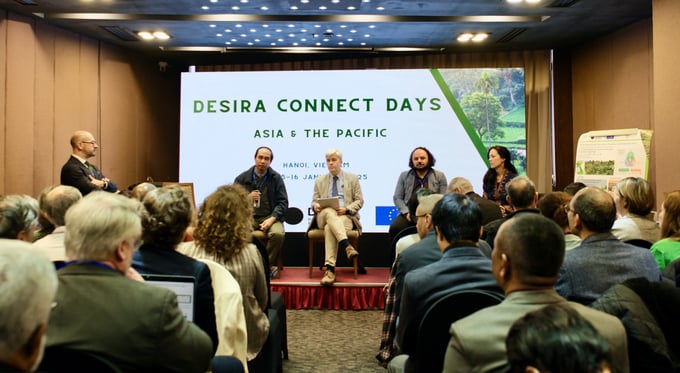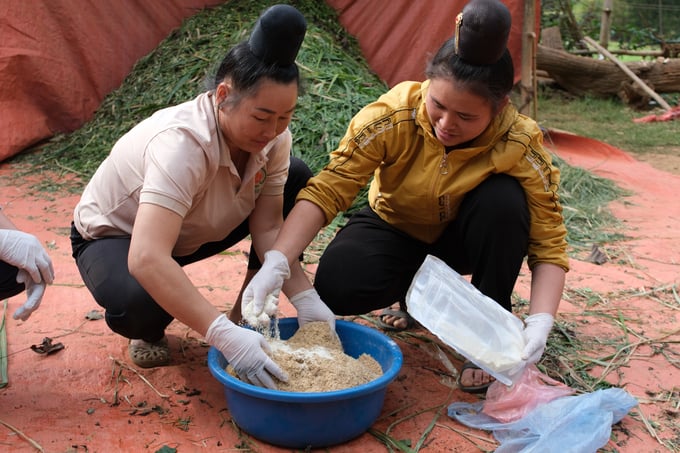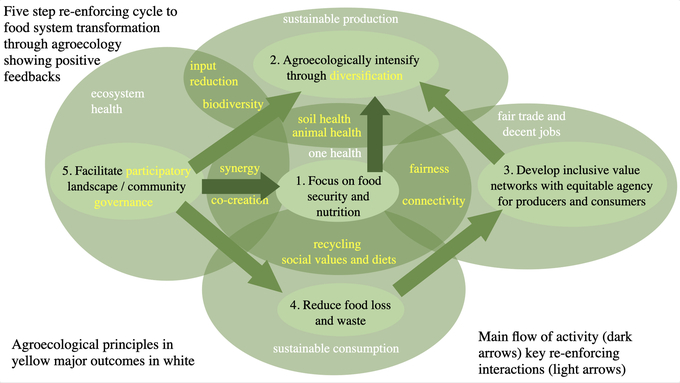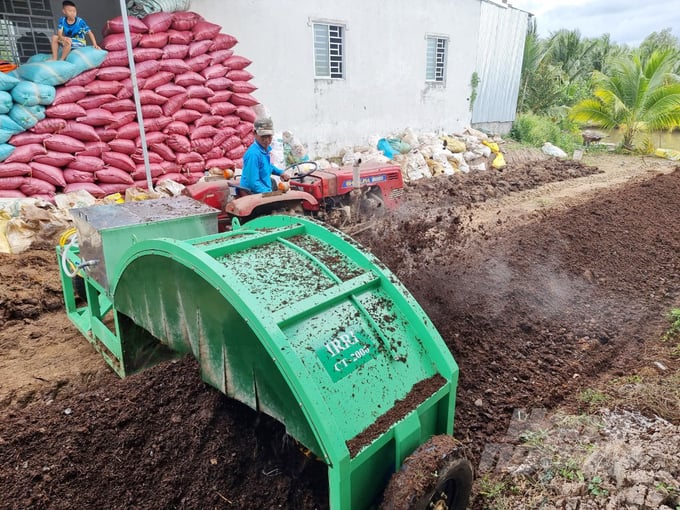November 28, 2025 | 03:55 GMT +7
November 28, 2025 | 03:55 GMT +7
Hotline: 0913.378.918
November 28, 2025 | 03:55 GMT +7
Hotline: 0913.378.918

DeSIRA Connect conference on January 14 in Hanoi. Photo: Quynh Chi.
From January 14 to 16 in Hanoi, The European Commission's DeSIRA LIFT initiative, in collaboration with the Vietnam Academy of Agricultural Sciences (VAAS) and CIRAD Regional Office, hosted the DeSIRA Connect workshop.
The event gathered 50 scientists from Asia, Europe, and Africa to discuss and exchange experiences in developing value chains and improving farmers’ livelihoods, particularly in the face of increasingly complex climate challenges. The goal is to transform scientific knowledge into practical tools that can assist countries in policymaking and in realizing the potential of agroecology.
In his remarks, Mr. Gonzalo Serrano, First Counselor and Deputy Head of EU Cooperation in Vietnam, highlighted the crucial role of international organizations in supporting Vietnam’s efforts to transform its food systems.
“As the EU continues to deepen its engagement with global partners, including Vietnam, initiatives like DeSIRA provide a platform to further strengthen our collaboration. Systemic changes in Vietnam will enhance the efficiency of technology transfer, positioning agriculture as a cornerstone of climate action and economic growth,” Mr. Serrano stated.
Representing the Association of Asian-Pacific Agricultural Research Institutions (APAARI), Dr. Murat Sartas, Chief Scaling & Impact Officer, shared insights on agricultural innovation, drawing from his experience in 55 countries.

Farmers of Thai ethnicity in Vietnam was introduced to organic composting techniques as part of ASSET project. Photo: Quynh Chi.
Dr. Sartas emphasized that the Asia-Pacific region is unique for its balance between indigenous knowledge and modern innovation. With much of the population residing in rural areas, international projects must account for cultural nuances and traditional farming practices to create meaningful community contributions.
“Many European research institutions face challenges when implementing projects in Asia. While they bring advanced technologies, it’s crucial to adapt these innovations to the production practices of Asia-Pacific countries. Building robust data systems and applying artificial intelligence (AI) can empower institutions to identify and support promising investments, ensuring technology transforms production effectively,” Dr. Sartas advised.
Agroecology offers integrated solutions to global challenges, emphasizing inclusiveness and the resilience of natural ecosystems. Prof. Fergus Sinclair, a Professor of Agroforestry at Bangor University (UK), highlighted an example of the reliance on nitrogen fertilizers derived from natural gas, which sustains food systems for approximately 1.8 billion people worldwide.

A 5-step approach to transforming food systems through agroecology. Photo: Prof. Fergus Sinclair.
As global temperatures continue to rise, Southeast Asia’s dependence on chemical fertilizers has become a pressing issue. Indonesia is the region's largest importer, while countries like the Philippines, Myanmar, and Thailand import over 80% of their domestic fertilizer needs.
Chemical fertilizers have historically supported half the world's population, but this comes at significant environmental costs, including increased soil acidity, heavy metal contamination, soil compaction that reduces water-holding capacity, and disruptions to soil microflora. Additionally, any abrupt cessation of synthetic fertilizers would leave most countries facing severe shortages of nitrogen, phosphorus, and potassium (NPK), which are essential for maintaining agricultural productivity.
To address these risks, Southeast Asia must adopt local and circular solutions to achieve "fertilizer security." Modern scientific advancements now enable the domestic recovery of NPK from natural sources and agricultural by-products, presenting a sustainable alternative to reliance on imported fertilizers.
For instance, Thailand and Myanmar have the potential to produce up to 11 million tons of fertilizers annually through local recovery methods, while Cambodia, Vietnam, and the Philippines could achieve self-sufficiency with approximately 1 million tons each.
Professor Sinclair emphasized that this transition requires systemic change, particularly a focus on promoting bio-fertilizer production at the household level.

Creating high-quality organic fertilizers from agricultural residues, such as straw, demands a well-defined technical process. Photo: Le Hoang Vu.
"The ownership of fertilizers will be placed in the hands of farmers. Communities will become the nucleus of innovation, reducing input costs and improving environmental resilience at both farm and national scales," he noted.
Professor Sinclair further stressed that implementing this approach is complex and requires appropriate policies, knowledge sharing, and a deep understanding of local practices. By investing in these solutions, Southeast Asia can establish a more sustainable, resilient, and self-reliant agricultural system.
“Empowering farmers and leveraging local innovation are key steps toward a more secure agricultural future,” the British expert concluded.
At the DeSIRA Connect workshop, experts shared experiences from the Agroecology and Safe Food System Transitions project ( ASSET ); the Agroecological Transitions Program for Building Resilient and Inclusive Agricultural & Food Systems (TRANSITIONS); the Smart Agro-ecological Transformation of Farming Systems towards Resilience and Sustainability in Middle and Coastal Zones of the Vietnam Mekong Delta project (STAR-FARM), among others.
Translated by Quynh Chi

(VAN) On November 27, in the meeting with Minister Tran Duc Thang, Mayor Yin Yong shared Beijing’s experience to improve environment and air quality.

(VAN) After 30 years, both sides identified strategic areas of cooperation: sustainable production, increasing coffee value and training for farmers.
/2025/11/27/4910-4-164708_294.jpg)
(VAN) On the afternoon of November 27 in Beijing, Minister of Agriculture and Environment Tran Duc Thang held a working session with several major Chinese enterprises operating in the agriculture and environment sector.

(VAN) The Department of Animal Health issued a provisional guideline requesting local authorities to increase surveillance, collect samples for testing, and conduct epidemiological investigations according to the established procedure.

(VAN) The United Nations recommends that Vietnam utilize data and artificial intelligence to enhance early disaster warnings and reduce GDP losses by 3.2% in the context of climate change.

(VAN) On the morning of November 27 in Beijing, Minister Tran Duc Thang and the Deputy Commissioner General of the General Administration of Customs of China signed a protocol on fresh jackfruit exports.

(VAN) As floodwaters recede, a vast network of irrigation works across eastern Gia Lai is emerging in a state of severe disrepair, with extensive damage demanding urgent restoration ahead of the 2025-2026 winter-spring cropping season.